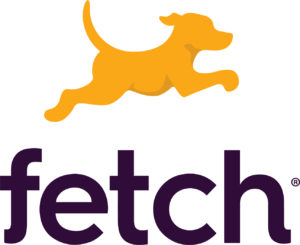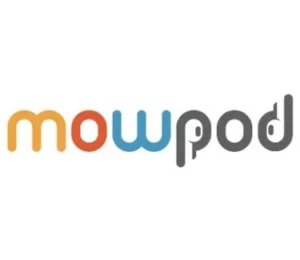How organic growth is different than SEO — OMG
Jon Bennion
Online Marketing Gurus

- Part 1When to prioritize organic growth strategies — OMG
- Part 2 How organic growth is different than SEO — OMG
- Part 3Blending Organic & Paid Growth channels — OMG
- Part 4SEO strategies in a COVID-world — OMG
- Part 5Evaluating your content ROI — OMG
- Part 6Defining your brand
Show Notes
Quotes
-
“Organic growth is two things for me. One, I’m not paying per click for it, like I’m getting traffic from variousplaces and I’m not paying for any per click or per view price. The second thing is, that it is an omnichannel approach and it could be coming from many different places. It does not necessarily mean that it’s just coming from Google or Bing, or what we typically credit organic growth with.” -Jon“Yeah, a lot of people think about organic growth and tie it in an organic bucket in Google Analytics which is really search engine traffic. In reality, you can drive organic growth from almost any marketing channel where you can use Facebook and build an audience and start driving traffic that you’re not paying for, or you can create a podcast, or a viral marketing campaign.” -Ben “SEO is a tactic to get organic growth and I do believe that it is one of the most important tactics or channels that you should use because simply we live in a day and age where if I need to know something, all I have to do is pull up a phone and I Google it. It’s never been easier to get all of the answers that we need to our questions.” -Jon“That said, you should start working on your organic growth as soon as you possibly can. It doesn’t have to be your entire focus but I think that making sure that you show up and that you rank when someone is looking for your product and service, is one of the best things that you can do to make sure that you have sustainable growth.” -Jon“If you are a B2B, if you have a product or service that you are selling to a business, I recommend that you still write that blog, put it up on your website, and then I want you to go online, go to LinkedIn and there I want you to talk about it. I want you to ask questions, I want you to tag people in the first comment, and try to get engagement about whatever problem it is that you’re solving. Whatever yourproduct does, see if you can start some sort of conversation around it and see if you can talk about why you came up with this product or why you invented the service, why you decided to take all this time and energy for this solution.” -Jon“If you are a B2C, it does get a little trickier. You can use Facebook, Instagram but my experience over the last year has shown me that it is a little bit harder to grow your organic following on both of those channels and I think that’s probably strategic on their side, they’re trying to push you towards some ads. You can still do it though but with Instagram, you have to make sure that your information and content is very visually appealing.” -Jon“Also with B2C, depending on the product, I always findmyself recommending that customers do engage with ads fairly quickly if they have a really good product and a decent price.” -Jon“Outside of social media, you can get creative in the way that you get referrals or create an affiliate program where people that talk about you are bringing business to you and you’ll be offering them some sort of kickback or something. Many companies have actually grown through affiliate programs.” -Jon“Uber is a great example of this where they were having luxury vehicles parked outside of busy clubs in San Francisco and what happened was someone would call an Uber and bring three people with them to go to the next bar, and then there was some sort of a referral model for having the other people in the car sign up. That’sorganic growth. They’re not actually paying to market to those customers, they’re just knowing who’s gonna be experiencing the product and give them an incentive to join the program.” -Ben“Another one that I’ve seen recently and I really love is Robinhood. The stock trading app. It has allowed the Millenials and GenZ to get in and actually do some trading without having to step through all kinds of hoops. It’s really easy.” -Jon“What they do is they say, ‘Hey, here’s a link. Send this to your contacts and anybody that signs up will give you a free stock and that free stock could be Apple, Nike.” -Jon 10:08 -Driving organic growth in B2B without the social side “For B2B, what I think they should do is email marketing. Acquire emails and they are all going to come in handy in a lot of different ways. You can use them for retargeting on Facebook, or you can use them to build look-alike audiences.” -Jon“Email marketing is one of the things that has changed so much over the last five years. It’s because people are not reading them like they used to. So my advice is, have good, authentic, yet scalable content and be a little more targeted with your email outreach.” -Jon“At the end of the day, no matter what channel you’re using if you are targetingand delivering the right message at the right place and at the right time is what drives marketing results.” -Ben
- Part 1When to prioritize organic growth strategies — OMG
- Part 2 How organic growth is different than SEO — OMG
- Part 3Blending Organic & Paid Growth channels — OMG
- Part 4SEO strategies in a COVID-world — OMG
- Part 5Evaluating your content ROI — OMG
- Part 6Defining your brand
Up Next:
-
Part 1When to prioritize organic growth strategies — OMG
This week we're going to talk about driving business results without buying your traffic. Joining us is Jon Bennion, the CEO of Online Marketing Gurus, a sponsor of the MarTech podcast, and an agency that specializes in SEO, AdWords and social media advertising. In part 1 of our conversation, we discuss when to prioritize organic growth strategies.
Play Podcast -
Part 2How organic growth is different than SEO — OMG
This week we're going to talk about driving business results without buying your traffic. Joining us is Jon Bennion, the CEO of Online Marketing Gurus, a sponsor of the MarTech podcast, and an agency that specializes in SEO, AdWords and social media advertising. In part 2 of our conversation, we discuss how organic growth is different than SEO.
-
Part 3Blending Organic & Paid Growth channels — OMG
This week we're going to talk about driving business results without buying your traffic. Joining us is John Bennion, the CEO of Online Marketing Gurus, a sponsor of the MarTech podcast, and an agency that specializes in SEO, AdWords and social media advertising. In part 3 of our conversation, we discuss blending organic and paid growth channels.
Play Podcast -
Part 4SEO strategies in a COVID-world — OMG
This week we're going to talk about driving business results without buying your traffic. Joining us is John Bennion, the CEO of Online Marketing Gurus, a sponsor of the MarTech podcast, and an agency that specializes in SEO, AdWords and social media advertising. In part 4 of our conversation, we discuss SEO strategies in a COVID-world.
Play Podcast -
Part 5Evaluating your content ROI — OMG
This week we're going to talk about driving business results without buying your traffic. Joining us is John Bennion, the CEO of Online Marketing Gurus, a sponsor of the MarTech podcast, and an agency that specializes in SEO, AdWords and social media advertising. In part 5 of our conversation, we discuss evaluating your content ROI.
Play Podcast -
Part 6Defining your brand
This week, we're going to talk about the process of building a brand that not only resonates with your team, but helps to scale your business in a way that makes sense to your clients. Joining us is Alex Chrisman, the Founder of Alta, which is a brand and creative strategy consultant that I hired to help me develop a brand at a startup I worked on - called Handel. In part 1 of our conversation, we discuss defining your brand.
Play Podcast










